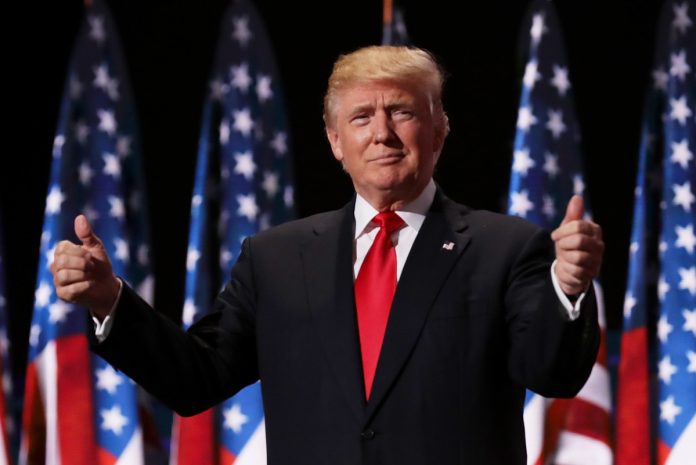President Donald Trump is modifying the study of constitutional law.
The nation’s law professors have spent time during the summer revising their courses to take account of a president who generates fresh constitutional questions by the tweet. When classes begin in the coming weeks, law students will be studying more than dusty doctrine. They will also be considering an arrangement of pressing questions.
When is firing a subordinate to counter an investigation obstruction of justice? Can a sitting president be prosecuted? Can the president pardon himself? May he accept financial benefits from foreign governments? Are his campaign statements evidence of religious bias? Should Congress authorize a nuclear strike against North Korea?
Jay D.Wexler, a law professor at the Boston University said, “It would be easy to design a whole course or write an entire book about the constitutional issues raised in just the first six months of the Trump presidency,”.
Constitutional scholars sounded both distressed and energized by these developments.
“Teaching the Constitution has never felt more urgent, like untangling a mix of ‘Apocalypse Now’ and ‘Alice in Wonderland,’ but with the highest possible stakes,” said Laurence H. Tribe, who is a law professor at Harvard and vocal critic of President Trump, and who also represents plaintiffs challenging foreign payments to President Trump’s companies. Many law professors from different universities, including several quoted in this column, have signed briefs not consenting to Mr. Trump’s actions.
Generations of law students have wrestled with the same basic issues in their constitutional law classes: the separation of powers, federalism, the Bill of Rights, equal protection, due process. President Trump, a one-man course in constitutional arcana, is supplementing that curriculum with some seldom-examined provisions of the Constitution.
In 2011, Professor Wexler published “The Odd Clauses: Understanding the Constitution Through 10 of Its Most Curious Provisions”
At least one of those curious provisions is suddenly salient. Professor Wexler devoted a chapter to the president’s power to bypass the Senate by making recess appointments. Mr. Trump might test that power should he try to replace Attorney General Jeff Sessions with someone prepared to fire Robert S. Mueller III, the special counsel investigating ties between the Trump campaign and Russia.
Then there were the clauses that were too obscure even for Professor Wexler.
“I don’t think anyone even knew how to pronounce the word ‘emoluments,’ much less know what it might mean, before Donald Trump took office,” Professor Wexler said. Now there are several lawsuits challenging payments to President Trump’s companies as violations of the Constitution’s two emoluments clauses, which bar federal officials from accepting compensation from foreign governments or payments from the federal government or the states beyond their salaries.
Sanford V. Levinson, a law professor at the University of Texas, said Mr. Trump’s presidency had revealed some shortcomings of the Constitution. To point out, he said, the framers should have made it easier to remove the president before his term was over.
“The fixed four-year term means we’re stuck with him unless we go through an unlikely impeachment or the 25th Amendment, ” he said, referring to an elaborate and confusing method of removing a president “unable to discharge the powers and duties of his office.”
“A desirable system,” Professor Levinson said, “would offer a way of voting ‘no confidence.’”



